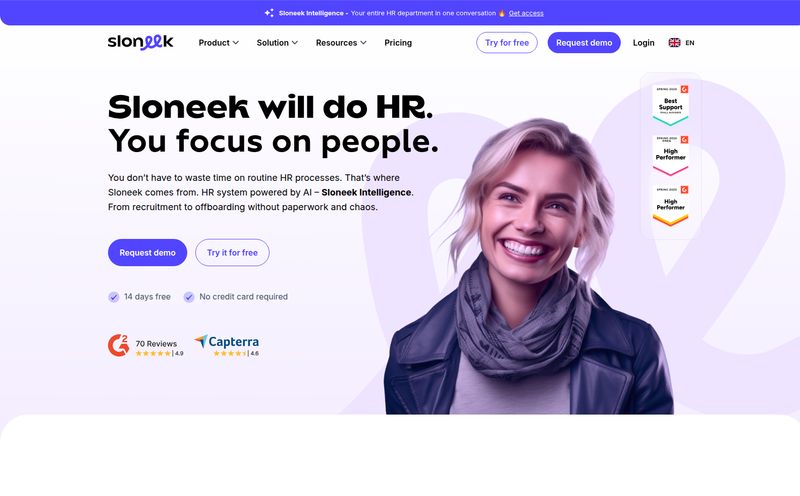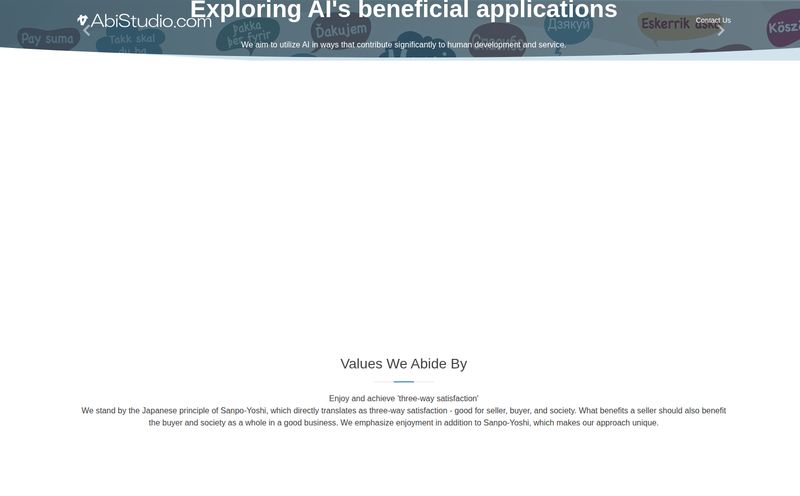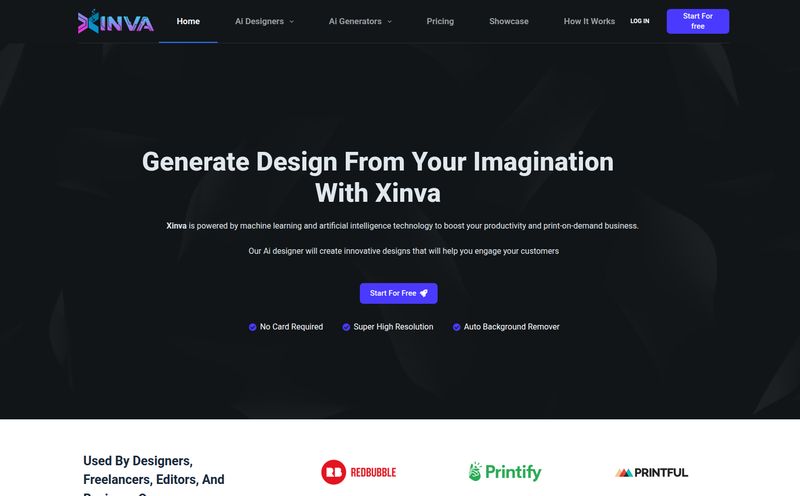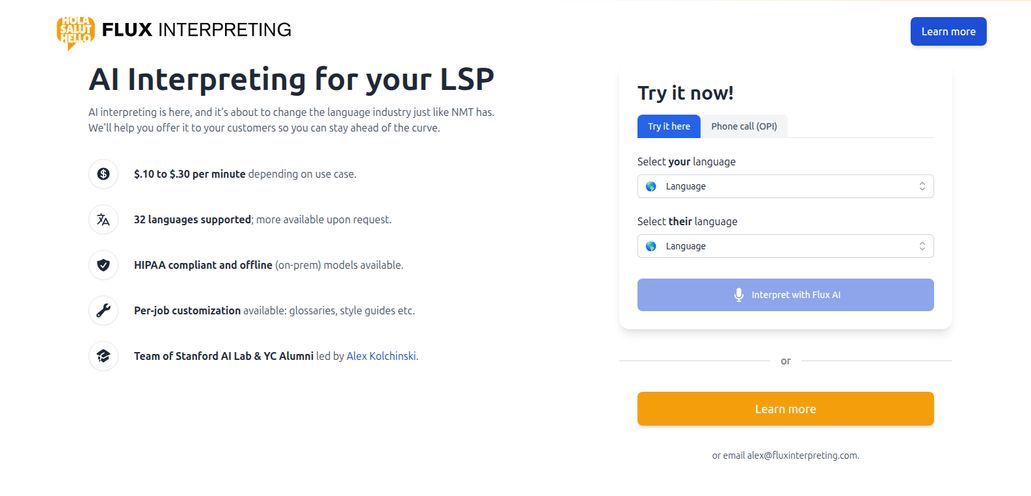I’ve lost count of the number of online courses I’ve bought... and abandoned. You know the ones. They promise to turn you into a coding genius or a marketing guru in 30 days. You start strong, watch a few videos, and then life happens. You fall behind, the rigid structure offers no way to catch up, and suddenly that $200 course is just another digital dust-gatherer. It’s a common story, and for years, I've felt the online education space has been shouting about “personalization” without actually delivering it. It’s mostly been static video playlists masquerading as a curriculum.
But every now and then, a tool comes along that makes me sit up and pay attention. A tool that feels… different. Today, that tool is called Duration. It’s an AI platform for building and selling learning plans, and its entire philosophy seems to be a direct shot at the static, impersonal course model we’ve all grown tired of.
So, is it just another platform with slick marketing, or is there something genuinely innovative under the hood? Let’s get into it.
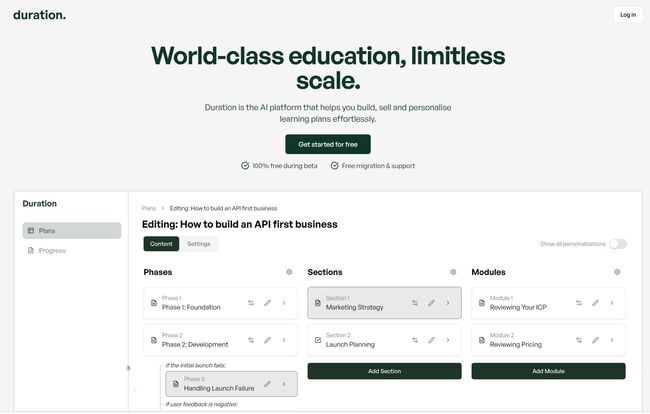
Visit Duration
First Off, What is Duration, Really?
On the surface, Duration is a platform for creators to build, sell, and manage online learning experiences. But that’s a bit like saying a smartphone is just a device for making calls. The core idea here, the thing that makes it interesting, is its focus on truly personalized learning paths. It uses AI not as a gimmick, but as a core mechanic to create a tailored journey for each student.
Think of it this way: most course platforms give you a bookshelf and some books. Duration aims to give each student a personal librarian who rearranges the shelf based on their reading speed, comprehension, and interests. It’s designed to be a teaching tool that adapts, not just a content-hosting platform that sits there. It promises “teaching that actually works,” which is a pretty bold claim in a market saturated with empty promises.
The Big Problem Duration Is Trying To Solve
Let's be real for a second. The biggest challenge in online education isn't creating content; it's student engagement and completion. The average completion rate for online courses is notoriously low, some studies from folks like Katy Jordan at Cambridge peg it as low as 5-15% for MOOCs. Why? Because a pre-recorded, one-size-fits-all path doesn’t account for individual learning styles, paces, or stumbling blocks. If a student gets stuck on module 3, the rest of the course becomes an uphill battle. They lose momentum, get discouraged, and eventually, they just ghost.
This is where the idea of an adaptive curriculum becomes so powerful. What if a platform could tell when a student is struggling and automatically offer them supplemental resources? Or, conversely, what if it could let an advanced student skip ahead? That’s the nut Duration is trying to crack.
How Duration Aims To Be Different
AI-Powered Personalization: The Secret Sauce
This is the heart of the platform. According to their site, Duration’s AI automatically generates a tailored learning path for each student based on their needs, experience, and progress. It’s not just about letting a student watch videos in a different order. It’s about dynamically adjusting the entire plan. You can see it in their UI design—the ability to create different “personalizations” of a single plan.
This is the difference between a generic workout PDF you download online and hiring a personal trainer. The PDF is static. The trainer watches your form, adjusts the weights when you're ready, and gives you a different exercise if one isn't working. That’s the kind of reactive, dynamic support Duration is shooting for. A teaching assistant for every student, not just a content library.
Building Your Plan: It Looks Deceptively Simple
I’m a sucker for a clean UI, and Duration’s looks very intuitive. The structure is broken down into three logical tiers: Phases (the major stages of your course), Sections (the topics within each phase), and Modules (the individual lessons). This hierarchical setup makes sense for organizing complex information without overwhelming the creator or the student.
And everything seems to be built-in. You’ve got native video uploads, so no need to mess around with third-party hosting like Vimeo or Wistia just to get started. You can attach resources directly at each step, ensuring students have exactly what they need, when they need it. This removes a lot of the technical friction that stops so many brilliant educators from creating in the first place.
My Honest Take: The Good, The Bad, and The Beta
Alright, let's get down to the nitty-gritty. No platform is perfect, especially one that's still fresh out of the oven.
What I'm Genuinely Excited About
The focus on student outcomes is a huge green flag for me. For too long, the industry has measured success by course sales, not student success. By building in tools for personalization and feedback, Duration is aligning its platform with what actually matters: learning. The platform is also built to scale, which is great for creators who are starting small but have big ambitions. But the real kicker? It’s currently 100% free during the beta period, and they’re even offering free migration and support. That’s an incredibly confident move and a fantastic opportunity for anyone wanting to experiment without financial risk.
A Few Reality Checks
Now for the flip side. The biggest elephant in the room is that payment processing is not yet available. It's listed as “coming soon,” but as of right now, you can’t directly sell your learning plan through the platform. This makes it a non-starter for anyone needing to generate revenue immediately. It's a lab for building amazing learning experiences, but the storefront is still under construction. The other thing to keep in mind is that it is in beta. That means features might change, bugs might pop up, and things could be a bit rough around the edges. You're an early adopter, not a customer of a finished product. And thats something to be aware of.
So, Who Is This Platform Actually For?
Right now, in its current state? I see two perfect users for Duration.
- The Innovating Educator or Coach: If you’re a creator who is more interested in perfecting a revolutionary teaching method than making a quick buck, this is your sandbox. You can build, test, and refine your personalized curriculum with real students without any platform fees. It’s perfect for running a pilot program or a high-touch coaching cohort.
- The Forward-Thinking Business: If you have an existing audience and want to build the next big thing in your niche, getting in on the ground floor with Duration could be a smart move. You can build out your flagship program while the platform matures, and be ready to hit the ground running once payment processing goes live.
Who is it not for? If you need a simple, all-in-one solution to launch a course and start making money by next Tuesday, this isn't it. Not yet, anyway. A platform like Teachable or Podia would be a more direct route for that specific goal.
The Price of Innovation is... Free?
This is probably the most compelling part of the whole deal. Duration is 100% free during its beta phase. There's no pricing page to scrutinize or feature tiers to compare. You get access to everything they have. This is a massive vote of confidence in their product, and it lowers the barrier to entry to literally zero.
Of course, it won't be free forever. I'd speculate that once they're out of beta and have payment processing sorted, they'll likely introduce a SaaS pricing model. Maybe a tiered system based on the number of students or a small percentage-based transaction fee. But for now, getting full access to this kind of tool for free is an opportunity that doesn't come around often.
Frequently Asked Questions
- Is Duration completely free to use right now?
- Yes, as of this writing, Duration is in a beta period and is 100% free to use. This includes all its features and even free migration support if you're moving from another platform.
- Can I sell my courses and make money on Duration?
- Not directly through the platform yet. Payment processing is a feature they are actively working on but it has not been released. You could potentially handle payments externally and grant access manually, but it's not a built-in function.
- How is Duration different from something like Teachable or Kajabi?
- The main difference is the core focus. Teachable and Kajabi are excellent all-in-one platforms for selling digital products, with a primary focus on marketing and sales funnels. Duration’s primary focus is on the learning experience itself, with its AI-driven personalization engine designed to improve student outcomes.
- Do I need to be a tech expert to build a plan on Duration?
- From the looks of the interface, no. It appears to be designed with a clean, intuitive drag-and-drop or point-and-click style structure (Phases, Sections, Modules) that should be accessible for non-technical creators.
- What happens to the content I create after the beta period ends?
- While this isn't explicitly stated, platforms typically provide a clear path forward for beta users. You would almost certainly retain ownership of all your content, and they would likely offer a special pricing plan or a smooth transition to their paid tiers once they launch.
My Final Verdict: A Platform to Watch
I came into this review skeptical, as I always am with claims of “revolutionizing” anything. But I’m leaving it genuinely optimistic. Duration isn't just another Learning Management System (LMS). It feels like a genuine attempt to solve a real problem in the online education world: the lack of true personalization. The skeleton is fantastic—the AI-driven philosophy, the clean UI, the focus on student success.
Yes, it's incomplete. The lack of native payment processing is a major piece of the puzzle that’s still in the box. But for creators who value pedagogy over immediate profit and want to be on the cutting edge of what’s next, getting into Duration’s free beta seems like a complete no-brainer. I’ll be keeping a very close eye on this one. They might just be building the future of online teaching.
References and Sources
- Duration Official Website: https://duration.so
- Jordan, K. (2015). MOOC Completion Rates: The Data. http://www.katyjordan.com/mooc-completion-rates/
